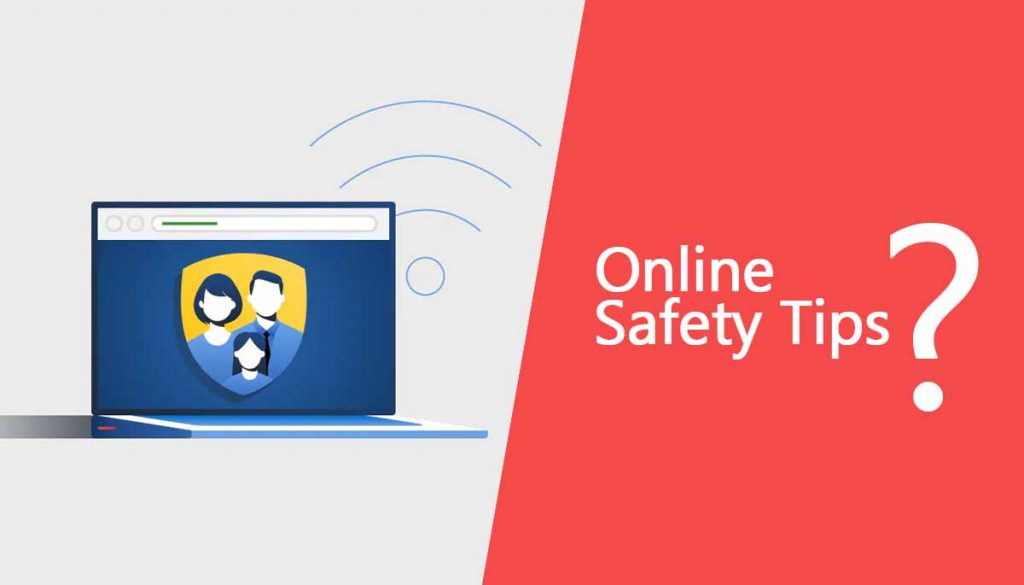
As a parent, you want your children to be safe at all times, whether they are at home, at school, or at a friend’s house having some fun. There are dangers everywhere, so you want to take the right steps to ensure your kids will be just fine, and you also want to teach your kids about things that they can do to keep themselves safe.
But, in addition to thinking about the dangers that children face when they are out and about, have you thought about the dangers they face when they’re surfing the World Wide Web? It’s sad but true: the simple act of being online can put a child at risk. Thankfully, there are online safety tips that parents can implement quickly and easily.

Table of Contents
3 Online Safety Tips that parents can implement
1. No Talking to Strangers
Unfortunately, there are child predators online. Pretending to be someone they aren’t is one of the scary tactics they use to trick kids into talking to them. If your kids are young, tell them that they are not allowed to talk to strangers online, just like they aren’t allowed to talk to strangers they encounter in public. This can be a bit harder with children who are older and who have started interacting on social media or playing online games with people from around the world.
If you notice that your kids are talking to people online, one of the first things you can do to put your mind at ease is run a background check on those individuals. This way, you can find out if they are truly who they say they are, or if they’re pretending to be someone else. To get started, all you have to do is head over to Nuwber and type in whatever information you have, such as a name, phone number, or address. Then, see what comes up. Super simple!
2. No Sharing Personal Information
Another important lesson you should teach your kids before they start using the internet: never give out your personal information to anyone online. They should avoid giving out names, addresses, phone numbers, or any other information about themselves and your family. And, if they want to buy something, they should ask you for permission, regardless of how old they are.
Let your kids know about the risks of having important information stolen, and the risk of identity theft. That way, they’ll know to use caution when surfing the internet for fun or for their studies.
3. No Clicking on Unfamiliar Links
One of the tricks that scammers use is sending fraudulent emails with links that might appear real but instead take you to a site that will download malware onto your computer to steal your information or cause damage to your system. These types of scams happen every single day, and kids who don’t know any better might end up clicking on ads on websites or links in emails without realizing the danger.
Be sure to show your kids how to mouse over a hyperlink to see where it will take them before they click on it. And help them learn how to identify signs, such as typos and spelling mistakes, that can alert them to the fact that an email is fraudulent. Let them know that if they aren’t absolutely sure a link is safe, they shouldn’t click it and they should ask you first.
Bottom line: in addition to using antivirus software on your computers and devices, it’s critical that you teach your kids how to stay safe online.





More Stories
11+ Best ThePiratebay3 Sites – Ultimate Pirate bay Alternatives
7movierulz iBomma – 11 Best Alternatives to Download & Watch latest Telugu Movies
How to Spam a Phone Number (7 best apps & services) with call, texts to Get Revenge?